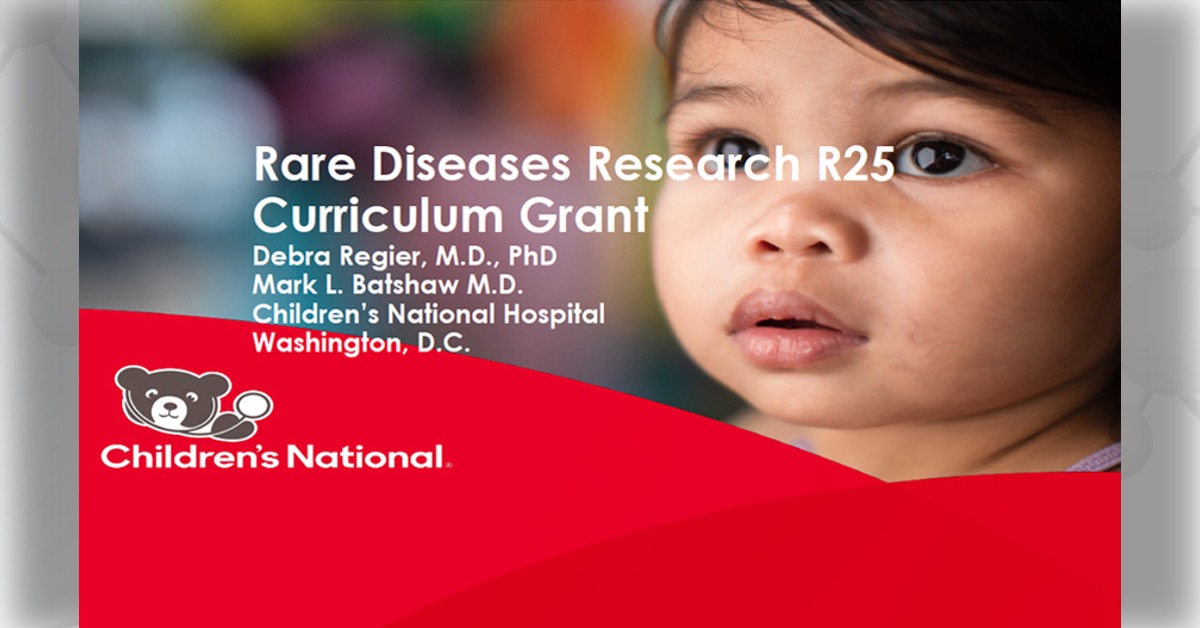The National Institutes of Health-funded R25 Rare Disease Clinical Research Training Program is launching a new training program for clinical research in rare disease. Now in its seventh year, this year-long, hybrid, free program is designed to support new investigators in the field of rare disease clinical research. It is hosted at Children’s National Hospital in Washington, DC.
Who can join the R25 Rare Disease Clinical Research Training Program?
The program is open to:
- Individuals working as clinical research assistants, associates, or coordinators
- Fellows in their final year of training
- Postdoctoral fellows
- Early career faculty with clinical research interests
Applications are open and can be submitted here. There is no cost for virtual or in-person sessions, and travel costs will be provided to selected participants.
What are the goals of the program?
The program is designed to equip and serve early career clinical researchers, preparing them to thrive in the rare disease research environment. Ultimately, the program aims to attract and retain diverse new investigators to the field.
An initial survey asked trainees in rare disease clinical research what resources would help them succeed. Based on this assessment, the team developed a year-long program to help support trainees at all levels.
What does the program offer?
Beginning with a two-day launch session in October 2022, Scholars will attend bi-monthly virtual sessions throughout the year. These one-hour sessions will focus on a variety of topics in rare disease research, including:
- Patient and family interactions
- Clinical research skills
- Laboratory and research management
- Faculty development
In addition, Scholars will attend the in-person Capstone Meeting in spring 2023. Held during the RDCRN Annual Meeting, this will include conference participation, research poster presentations, and a graduation ceremony.
Other program highlights include:
- Master Writer’s Courses and Workshops. Led by program co-principal investigator Mark Batshaw, MD, these new sessions will focus on the skills needed to be a successful writer and communicator in the rare disease field. “We know that competence in writing—and successful writing—is really important in rare disease clinical research outcomes long-term,” says Regier.
- Opportunities for mentorship. Scholars will learn to identify their own mentorship style and become a culturally competent mentor. Additionally, Scholars will interact and collaborate with principal investigators, session leaders, and program alumni. “We are excited to now have six years of alumni,” says Regier. “They are really plugged into the rare disease community, and I think part of that is because of their participation in our program.”
- Focus on diversity. “This year, we are increasing our efforts to involve and support members of populations underrepresented in medicine,” says Regier. The program will focus on increasing diversity in rare disease research, both in the workforce and in research participation.
Apply to the program here. To learn more or ask questions, please contact course director Debra Regier, MD, PhD, at DRegier@childrensnational.org or course coordinator Tiffany Swaringer at tswaringer@childrensnational.org.

